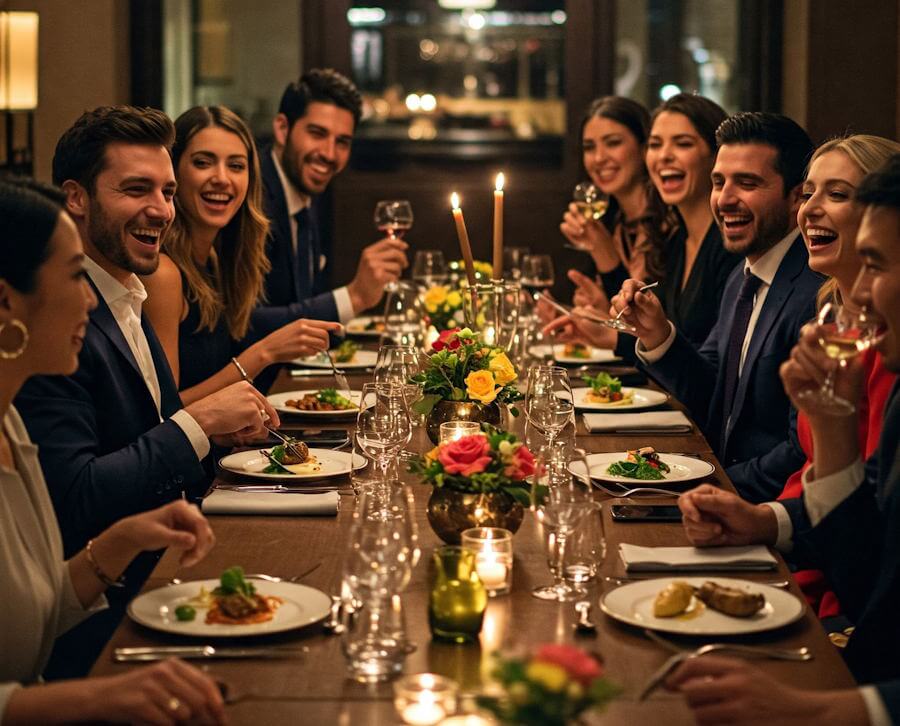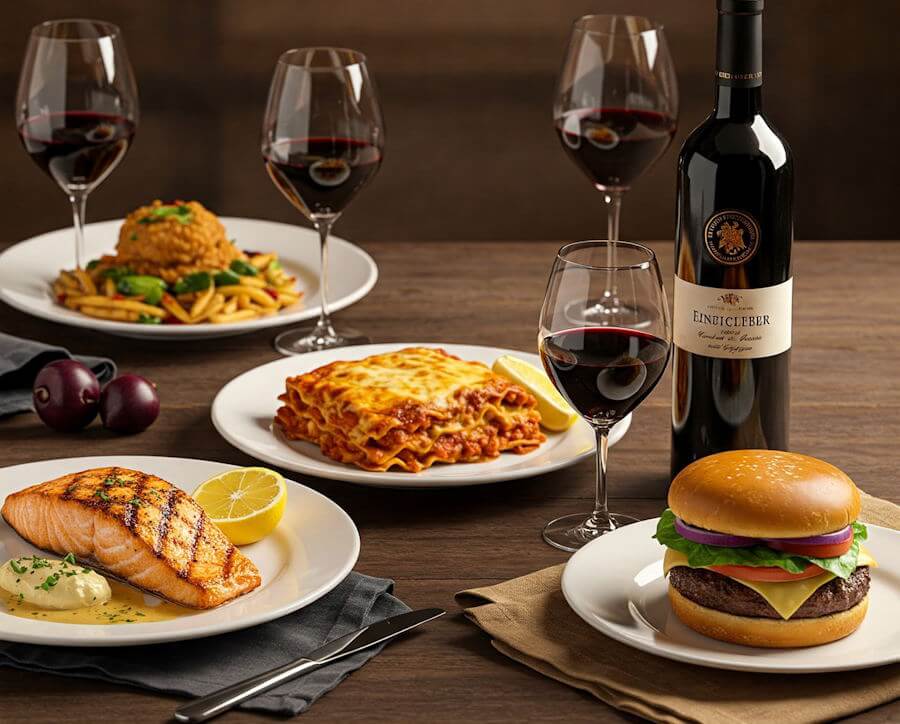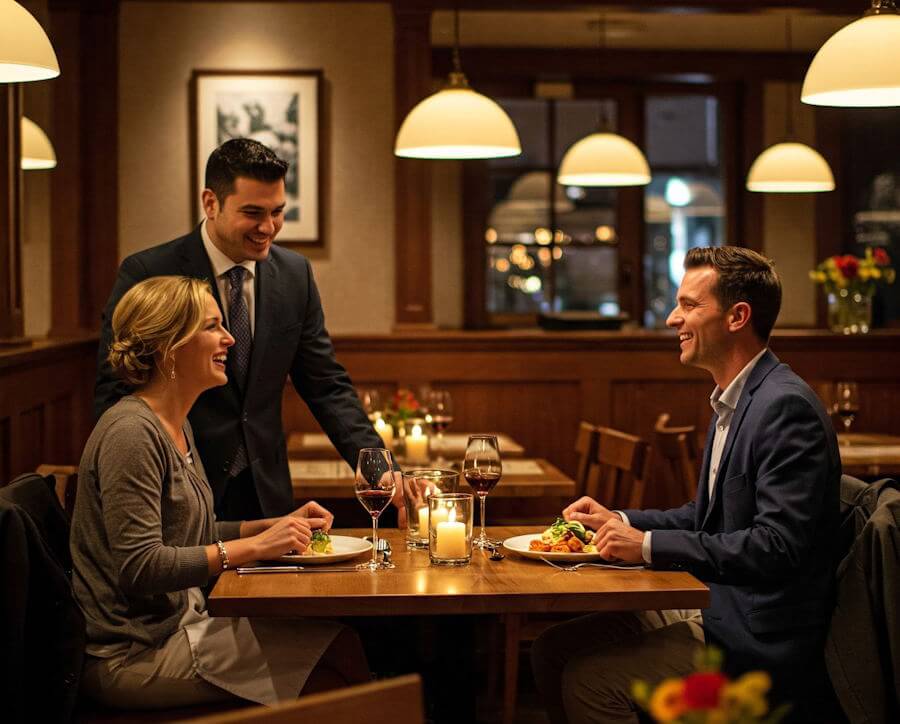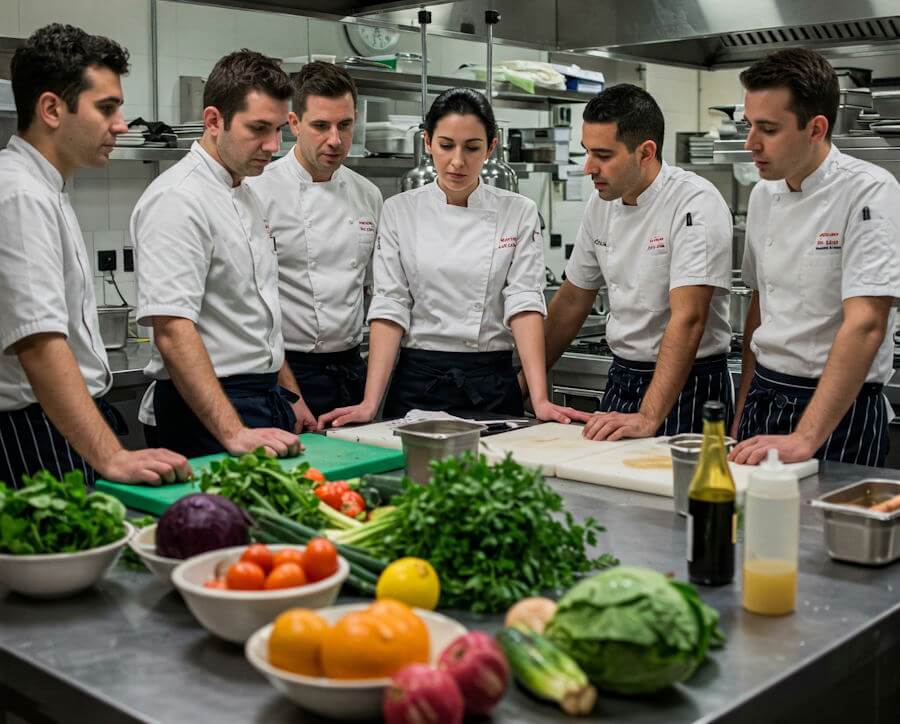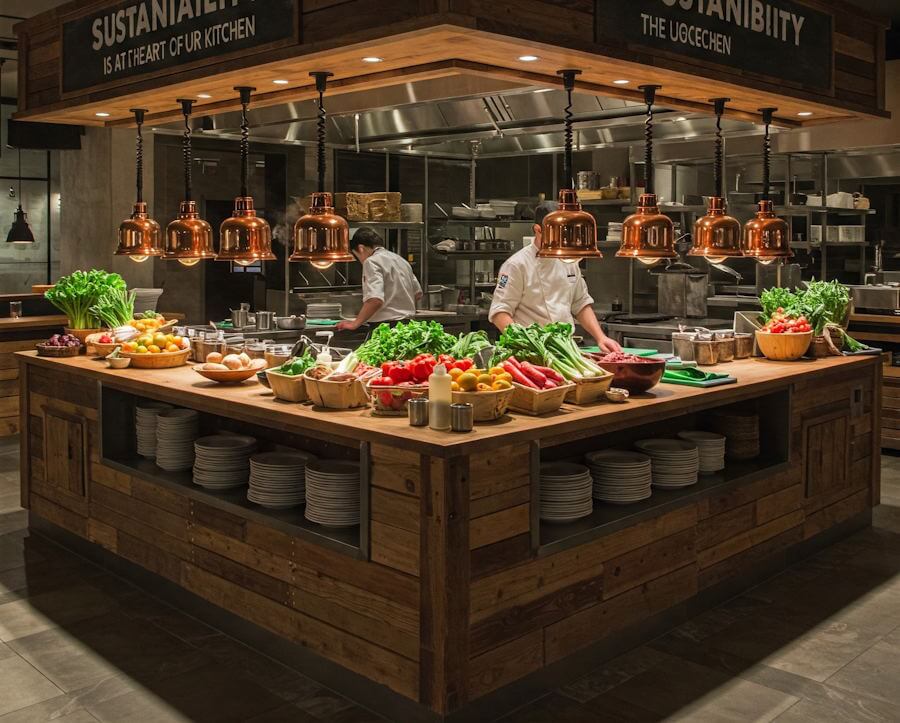In the contemporary dining landscape, the significance of booking a table in advance cannot be overstated. Securing a reservation is a proactive approach that guarantees a seamless and enjoyable dining experience. One of the primary advantages of booking a table is ensuring seating availability at popular restaurants. Many establishments operate with limited seating capacity, especially during peak dining hours. By reserving a table ahead of time, diners can avoid the uncertainty associated with walk-in visits and the potential disappointment of being turned away.
Another crucial aspect of table booking is the reduction of waiting times. Upon arrival, guests who have made reservations are often seated more promptly than those without. This not only minimizes the frustration of lengthy waits in crowded lobbies but also allows for a more relaxed atmosphere as diners settle into their meals without the pressure of lingering. Consequently, a pre-arranged table allows diners to indulge in the culinary offerings without being preoccupied with the logistics of seating arrangements.
Additionally, booking a table can significantly enhance overall satisfaction during the dining experience. With a confirmed reservation, diners can plan accordingly, tailoring their outing to fit the occasion, whether it’s a celebratory dinner, business meeting, or casual get-together. Such preparations foster an environment conducive to enjoyment, where diners can focus on the company and cuisine without distractions. Moreover, many restaurants offer special arrangements or menus for reserved tables, thereby elevating the dining experience further.
In conclusion, understanding the importance of table booking is essential for anyone looking to enjoy a pleasant and memorable dining experience. The act of reserving a table not only secures availability and reduces wait times but also contributes significantly to the overall satisfaction of the outing.
Researching Restaurants: Key Considerations
Choosing the ideal restaurant can significantly enhance your dining experience, making it essential to conduct thorough research prior to making a reservation. One of the primary considerations is the type of cuisine offered by the restaurant. With a plethora of culinary options available, it is advisable to determine your preferences or dietary restrictions ahead of time. Whether you are in the mood for Italian, Thai, or a fusion of flavors, narrowing down the type of cuisine will help streamline your choices.
Ambiance is another critical factor that plays a pivotal role in the dining experience. The atmosphere of a restaurant can range from casual to formal, impacting the overall enjoyment of your meal. Consider what kind of environment you prefer; for instance, a lively setting may be ideal for a celebration, while a quieter place could be better suited for an intimate dinner. Visiting the restaurant’s website or social media pages can provide insights into the ambiance and help gauge whether it aligns with your expectations.
Location is equally important when selecting a restaurant. Proximity to your residence, workplace, or any planned activities can enhance convenience. Opting for a restaurant that is easily accessible can save time and ensure a more enjoyable outing. Additionally, customer reviews are invaluable in assessing the quality of a restaurant. Platforms such as Yelp or Google Reviews can offer a wealth of information, showcasing both positive and negative feedback from previous diners. Special features, like happy hour deals or themed nights, can also influence your decision and elevate the dining experience.
By considering these key factors—cuisine, ambiance, location, customer reviews, and special features—you can refine your choices, making it easier to book the perfect table every time.
Choosing the Right Time and Date for Your Reservation
Booking the perfect table begins with an astute selection of the time and date of your reservation. Understanding peak dining hours is essential for securing an optimal dining experience. Generally, restaurants experience their busiest periods during Friday and Saturday evenings, where patrons flock to celebrate the weekend. If you are aiming for a more relaxed atmosphere, consider planning your visit during off-peak times, such as mid-week or late afternoon. This tactic not only enhances your overall dining experience but also allows for better service and attention from staff.
Moreover, it is prudent to consider special events, holidays, and local festivals when choosing your dining date. Restaurants often see increased traffic during occasions such as Valentine’s Day, Mother’s Day, or major sporting events. These times can significantly affect both availability and the overall dining ambiance. To avoid disappointment, it is advisable to book well in advance during such peak times. For instance, if you plan to dine out for a holiday celebration, make your reservation several weeks in advance to ensure you can secure a preferred time and table location.
Additionally, be aware of busy days and consider the type of dining experience you prefer. If you cherish a quieter setting, aim for earlier seating times or later reservations, keeping in mind that dining right when establishments open can offer a more serene atmosphere. Utilize online reservation platforms to gain insights into restaurant traffic patterns and historical demand. These resources can help you identify trends and optimize your booking strategy. In this way, you will improve your chances of enjoying a perfect table every time you dine out.
Utilizing Technology: Apps and Websites for Booking
In the age of digital technology, securing a table at your favorite restaurant has never been easier, thanks to various apps and websites designed specifically for this purpose. Popular platforms such as OpenTable, Resy, and Bookatable facilitate seamless restaurant reservations, providing users with a convenient way to manage their dining experiences. Each of these tools offers unique features that cater to different needs, making the selection process an important one.
OpenTable is widely recognized for its extensive database of restaurants, allowing users to search by location, cuisine, or dietary preferences. The platform also offers a loyalty program, enabling diners to earn points with each reservation that can be redeemed for discounts or free meals. Resy, on the other hand, emphasizes ease of use, providing a straightforward interface that simplifies the booking process. They also spotlight coveted local restaurants, making it a great choice for those seeking new dining experiences. Similarly, Bookatable stands out by not only offering reservation services but also presenting exclusive deals and discounts at participating restaurants.
When utilizing these platforms, proper strategy can greatly enhance the dining experience. For instance, it is beneficial to book in advance, particularly for peak dining hours or special occasions, as many sought-after tables are quickly reserved. Users should also frequently check for any available promotions or booking incentives. Another effective approach is to read user reviews and ratings on these platforms before making a reservation, as this can provide valuable insight into the quality of service and ambiance at the restaurant.
Ultimately, by harnessing the capabilities of these modern tools, diners can make informed choices, ensuring that they enjoy memorable meals at well-reviewed establishments, truly booking the perfect table every time.
Communicating Special Requests and Preferences
When making a reservation for a dining experience, effective communication of special requests and preferences is invaluable. Establishments often aim to provide an accommodating atmosphere, and expressing specific needs upfront can significantly enhance your overall experience. Whether you have dietary restrictions, seating preferences, or are celebrating a special occasion, conveying these details upon booking is essential.
Start by clearly stating any dietary restrictions you may have. Restaurants often have various options available for those with allergies or specific dietary needs, such as vegan, vegetarian, gluten-free, or nut-free dishes. When reaching out to the restaurant, politely mention your requirements. For instance, you might say, “I have a severe nut allergy. Could you please confirm if the dishes accommodate this?” Many establishments appreciate the transparency and often prepare additional options tailored to your needs.
Seating preferences also merit attention during the reservation process. If you have a preference for indoor or outdoor seating, or if you require a quieter area due to sensitive hearing or a large group, don’t hesitate to communicate this information. Phrasing your request thoughtfully, such as, “We would prefer a quieter table in the corner if possible,” can aid staff in catering to your wishes while maintaining a pleasant dining environment for everyone.
Additionally, if your reservation is linked to a special occasion—like an anniversary, birthday, or graduation—sharing this detail can motivate the restaurant to go the extra mile. They may offer complimentary services such as a celebratory dessert or a special decoration for your table, ensuring a memorable experience. By effectively articulating your requests, you not only enhance your own experience but also assist restaurant staff in accommodating you and creating a delightful and personalized dining atmosphere.
Follow-Up: Confirming Your Reservation
Ensuring a seamless dining experience begins long before you arrive at the restaurant. A crucial step that is often overlooked is confirming your reservation. This simple yet effective practice can significantly reduce the chance of encountering mishaps, such as double bookings or lost reservations. Without this confirmation, you might arrive at the restaurant only to find that your table is not available, potentially ruining your evening.
To prevent such situations, timely confirmation is essential. It is advisable to contact the restaurant at least 24 hours before your reservation. This not only provides the restaurant ample time to address any potential issues but also serves as a reminder for your upcoming dining experience. Many establishments appreciate a courtesy call, and it gives you peace of mind knowing your reservation is secure.
In terms of methods, confirming your reservation can be done through various channels. A phone call remains the most direct and reliable option; however, many restaurants also offer confirmation via email or through reservation platforms. If you used an online booking service, checking for any confirmation emails or using the app to verify your reservation is a convenient alternative. Regardless of the method chosen, the key is to communicate directly with the restaurant to ascertain that your details are accurately recorded.
Moreover, it’s prudent to reconsider the time window of your reservation when confirming. If you are arriving at a busy dining hour or on a weekend, providing a quick confirmation call becomes even more pertinent. This ensures that the restaurant can properly manage its seating and accommodate any potential changes. Ultimately, confirming your reservation helps create a more enjoyable dining experience, allowing you to focus on the ambiance and cuisine rather than the logistical stresses associated with unconfirmed tables.
Handling Last-Minute Changes or Cancellations
Making a reservation at a restaurant is often a straightforward process; however, life can be unpredictable, leading to last-minute changes or cancellations. In such cases, it’s essential to approach the situation with tact and consideration for the establishment’s policies. When you find yourself needing to adjust your reservation, the first step is to review the restaurant’s cancellation policy. Many eateries have specific guidelines regarding how much notice is required for cancellations or changes to avoid charges. Understanding these policies will help set your expectations and assist in managing any potential fees.
If you need to cancel or reschedule, it’s highly advisable to inform the restaurant as soon as possible. A prompt notification allows them to accommodate other diners and potentially fill your slot, which is crucial especially for popular dining venues. When reaching out to the restaurant, whether by phone or through their online reservation system, maintain a polite tone, express your apologies, and clearly state your request. For instance, you might say, “I had a reservation for dinner tonight but need to cancel due to unforeseen circumstances. I apologize for the inconvenience.” This courteous approach fosters goodwill and increases the likelihood of a positive interaction with the staff.
In cases where the cancellation is unavoidable, some restaurants may provide the option to reschedule your reservation. If this is not offered, you can inquire if an alternative date is available that suits your schedule. Additionally, if you were unable to make it to a reservation and incurred a no-show fee, consider discussing this with the restaurant, especially if your absence was due to extenuating circumstances. Many establishments appreciate open communication and may be willing to find a resolution. By handling last-minute changes gracefully, you can ensure a good relationship with the restaurant, paving the way for future dining experiences.
The Art of Arrival: Preparing for Your Dining Experience
Arriving on time for a dining reservation is a crucial aspect of the overall dining experience. Punctuality demonstrates respect for the establishment and its staff, contributing to a positive atmosphere. When guests adhere to their reserved times, it allows restaurants to manage their flow, particularly during busy periods, enhancing the experience not just for themselves but also for others. Late arrivals may negatively impact table turnover, leading to potential frustration for both patrons and the staff.
To make a lasting impression upon your arrival, considering the dress code is essential. Each dining venue has its own expectations—ranging from casual to formal attire. Researching the restaurant’s dress code in advance ensures that you will be appropriately dressed and comfortable in the setting. Choosing an outfit that aligns with the ambiance demonstrates respect for the establishment’s standards, which can enrich your interactions with the staff and other diners.
Respect plays a significant role in cultivating a pleasant dining experience. Upon entering the venue, greeting the host with a polite smile and a courteous demeanor sets a positive tone right from the start. Simple gestures, such as saying “thank you” and using proper etiquette, can elevate your overall experience. Furthermore, treating staff with kindness fosters a welcoming environment, which often results in attentive service and a willingness to accommodate special requests during your meal.
In conclusion, mastering the art of arrival is essential for a successful dining engagement. By being punctual, dressing appropriately, and demonstrating respect towards staff, you not only enhance your own enjoyment but contribute positively to the overall dining atmosphere. These small yet significant actions help ensure that each dining experience is memorable and enjoyable, setting the stage for future visits.
Maximizing Your Experience Once Seated
Once you have successfully booked your desired table and are comfortably seated, the next step is to enhance your overall dining experience. Engaging with the waitstaff is a vital component of this. The staff possesses extensive knowledge about the menu and can provide valuable insights into the dishes and drinks offered. Don’t hesitate to ask for recommendations; whether you are looking for the chef’s specialties or popular customer choices, their expertise can guide you toward making satisfying selections.
In addition to the waitstaff, fostering interaction at your table can significantly elevate the dining experience. Engaging in light conversation with your dining companions creates a warm atmosphere. Sharing opinions on your selections can lead to a vibrant discussion, deepening connections and making the meal more memorable. Should the opportunity arise, consider trying dishes from your companions’ plates. This not only creates a communal experience but also allows you to explore an array of flavors that you may not have chosen yourself.
Moreover, embracing the ambiance of the restaurant can further enrich your meal. Pay attention to the interior décor, music, and overall atmosphere as they often contribute to the dining experience. Taking a moment to appreciate these elements can heighten your enjoyment of the food itself. Finally, enjoy the pace of your meal. Allow yourself the space to savor each course without feeling rushed. By fully immersing yourself in the dining experience, from tasting to conversation, you lay the groundwork for a truly enjoyable outing.
Maximizing your dining experience involves thoughtful engagement with both staff and fellow diners. Each moment spent at your table has the potential to enhance your enjoyment significantly, turning a simple meal into an unforgettable experience.

